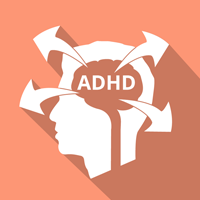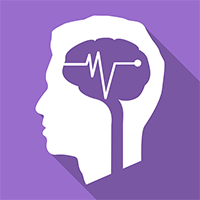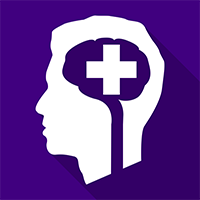-
 Twitter is a social media platform that is used by a wide range of people, from celebrities, who use it to communicate with their fans to companies and brands who can use it to engage their customers and attract new ones. This courses will look in detail at the use of Twitter as part of your marketing activity.
Twitter is a social media platform that is used by a wide range of people, from celebrities, who use it to communicate with their fans to companies and brands who can use it to engage their customers and attract new ones. This courses will look in detail at the use of Twitter as part of your marketing activity. -
 This course explores the risk to workers caused by the Covid-19 virus and covers actions that can be taken by employers and employees to protect themselves and each other as they return to work. The content of this course is based on the latest information from the UK government and the NHS. It covers information about the virus, risk assessments and personal safety, along with how to make changes to the daily work environment to address these risks
This course explores the risk to workers caused by the Covid-19 virus and covers actions that can be taken by employers and employees to protect themselves and each other as they return to work. The content of this course is based on the latest information from the UK government and the NHS. It covers information about the virus, risk assessments and personal safety, along with how to make changes to the daily work environment to address these risks -
 Electricity is the lifeblood of modern society, it enhances our quality of life and we are becoming increasingly reliant on it to power tools and devices we use for work and entertainment. However, although electricity has many benefits it can also be a hidden killer as it can’t be seen, felt, smelled or heard until someone comes into contact with it. This online Electrical Safety E-Learning course will start by covering the many benefits electricity brings to society and its key components voltage, current, and resistance. The Electrical Safety online course will explain the two main types of electricity, cover UK accident and death statistics, and describe a simple way of remembering the electrical hazards. The online Electrical Safety course then goes on to provide basic instructions about how you could safely help someone you suspect has received an electric shock. Towards the end of the Electrical Safety E-Learning course it includes an overview of the main standards, guidance and legislation that control the use of electricity in the workplace, and finish off by looking at simple maintenance plans and portable appliance testing including who within an organisation would be best to carry out the various checks. Training staff in Electrical Safety is vital to protect your employees and allow them to understand their role and responsibilities regarding Electrical Safety in the workplace. IIRSM approval means that this course can be used in the future by those that need to prove they are continually developing themselves.
Electricity is the lifeblood of modern society, it enhances our quality of life and we are becoming increasingly reliant on it to power tools and devices we use for work and entertainment. However, although electricity has many benefits it can also be a hidden killer as it can’t be seen, felt, smelled or heard until someone comes into contact with it. This online Electrical Safety E-Learning course will start by covering the many benefits electricity brings to society and its key components voltage, current, and resistance. The Electrical Safety online course will explain the two main types of electricity, cover UK accident and death statistics, and describe a simple way of remembering the electrical hazards. The online Electrical Safety course then goes on to provide basic instructions about how you could safely help someone you suspect has received an electric shock. Towards the end of the Electrical Safety E-Learning course it includes an overview of the main standards, guidance and legislation that control the use of electricity in the workplace, and finish off by looking at simple maintenance plans and portable appliance testing including who within an organisation would be best to carry out the various checks. Training staff in Electrical Safety is vital to protect your employees and allow them to understand their role and responsibilities regarding Electrical Safety in the workplace. IIRSM approval means that this course can be used in the future by those that need to prove they are continually developing themselves.Electrical Safety Modules
Overview and Benefits of Electricity What is Electricity? How Electricity Can Cause Harm Legislation, Standards and Key Steps PAT Testing Standards and Guidance Approved by IIRSM – Duration 45 mins* -
 Current legislation, The Regulatory Reform (Fire Safety) Order 2005, applies to all workplaces regardless of the number of employees and requires employers to provide adequate training in fire awareness for all staff members. Our Online Fire Extinguisher training course aims to give all employees a basic introduction to identifying the different types of extinguisher available, determining which is the best extinguisher for the fire and the protocol of extinguishing a fire. This Fire Extinguisher E-Learning Course provides training in the use of different fire extinguishers and the protocol of tackling a fire. It is a cost-effective way for employers to fulfil their legal obligation to provide their employees with the necessary understanding of fire extinguishers. Candidates can progress through the modules at their own pace and in their own time to fit the training in around their work and personal life. The Online Fire Extinguisher E-Learning course is approved by leading industry bodies: The Institute of Hospitality, IIRSM, Gatehouse Awards & CPD.
Current legislation, The Regulatory Reform (Fire Safety) Order 2005, applies to all workplaces regardless of the number of employees and requires employers to provide adequate training in fire awareness for all staff members. Our Online Fire Extinguisher training course aims to give all employees a basic introduction to identifying the different types of extinguisher available, determining which is the best extinguisher for the fire and the protocol of extinguishing a fire. This Fire Extinguisher E-Learning Course provides training in the use of different fire extinguishers and the protocol of tackling a fire. It is a cost-effective way for employers to fulfil their legal obligation to provide their employees with the necessary understanding of fire extinguishers. Candidates can progress through the modules at their own pace and in their own time to fit the training in around their work and personal life. The Online Fire Extinguisher E-Learning course is approved by leading industry bodies: The Institute of Hospitality, IIRSM, Gatehouse Awards & CPD.Fire Extinguisher Modules
Fire Extinguishers Pre-Engagement Action Using a Fire Extinguisher Approved by Institute of Hospitality, IIRSM, Gatehouse Awards & CPD – Duration 25 mins* -
 Current legislation, The Regulatory Reform (Fire Safety) Order 2005, applies to all workplaces regardless of the number of employees and requires employers to provide adequate training in fire awareness for all members of their staff. Our Online Fire Marshal training courses are aimed at all employees to assist them in identifying and reducing the risk that fire presents in the workplace. Fire marshals (sometimes known as fire wardens) are civilians trained to assist in emergency fire evacuation procedures at businesses and other organizations. It is a legal obligation that workplaces must have sufficient fire marshals to deal with fire emergencies. This Fire Marshal E-Learning training course provides extensive knowledge of fire prevention, evacuation protocol and using fire extinguishers. It is a cost-effective way for employers to fulfil their legal obligation to provide their employees with the necessary understanding of fire awareness. Candidates can progress through the modules at their own pace and in their own time to fit the training in around their work and personal life. The Fire Marshal E-Learning course is approved by leading industry bodies: The Institute of Hospitality, IIRSM, Gatehouse Awards & CPD Please note, this course also contains all of the content in the Basic Fire Awareness and Fire Extinguisher courses.
Current legislation, The Regulatory Reform (Fire Safety) Order 2005, applies to all workplaces regardless of the number of employees and requires employers to provide adequate training in fire awareness for all members of their staff. Our Online Fire Marshal training courses are aimed at all employees to assist them in identifying and reducing the risk that fire presents in the workplace. Fire marshals (sometimes known as fire wardens) are civilians trained to assist in emergency fire evacuation procedures at businesses and other organizations. It is a legal obligation that workplaces must have sufficient fire marshals to deal with fire emergencies. This Fire Marshal E-Learning training course provides extensive knowledge of fire prevention, evacuation protocol and using fire extinguishers. It is a cost-effective way for employers to fulfil their legal obligation to provide their employees with the necessary understanding of fire awareness. Candidates can progress through the modules at their own pace and in their own time to fit the training in around their work and personal life. The Fire Marshal E-Learning course is approved by leading industry bodies: The Institute of Hospitality, IIRSM, Gatehouse Awards & CPD Please note, this course also contains all of the content in the Basic Fire Awareness and Fire Extinguisher courses.Fire Marshal Modules
Chemistry of Fire Common Causes of Fire Basic Safety Features in Buildings Introduction to Fire Extinguishers What to do in Cases of Fire? Fire Statistics Current Fire Safety Legislation Fire Risk Preventative Measures Safety Features within Buildings Role of the Fire Marshal Action on Fire Discovery Fire Drills and Evacuation Fire Extinguishers Pre-Engagement Action Using a Fire Extinguisher Approved by Institute of Hospitality, IIRSM, Gatehouse Awards & CPD – Duration 220 mins* -
 At the end of this course, candidates will have an understanding of what a risk assessment is and how to complete one. To achieve this the course will define important terms, provide some basic background information to explain how important risk assessments are and discuss some of the legislation that applies. It will then go on to provide practical advice on how to identify hazards and analyse risk before finishing off by explaining the responsibilities of both employers and employees with regards to risk assessment. Approved by IIRSM & CPD- Duration 90 mins*
At the end of this course, candidates will have an understanding of what a risk assessment is and how to complete one. To achieve this the course will define important terms, provide some basic background information to explain how important risk assessments are and discuss some of the legislation that applies. It will then go on to provide practical advice on how to identify hazards and analyse risk before finishing off by explaining the responsibilities of both employers and employees with regards to risk assessment. Approved by IIRSM & CPD- Duration 90 mins* -
 Our Online Adult Safeguarding course has been created because, first and foremost, every one of us has basic human rights. Chief among these is the right to be healthy, happy and treated well, regardless of race, age, sex or location. When these rights are abused in some way, it’s wrong. Therefore, it is vital that guidelines, policies, and procedures are followed to enable everyone, without exception, to live a life in which these basic values and rights are maintained and upheld. Every person, regardless of their age, sex, religion, ethnicity or background has the right to a healthy, happy life. Adult safeguarding is about minimising and managing the risks to vulnerable individuals. This Safeguarding Adults E-Learning Course is aimed at anyone who has a duty of care for, or comes into contact with, adults in need of care and support, either as a paid professional or a volunteer. This includes, but isn’t limited to, those that work in domiciliary care, the NHS, community centres, prisons or with a family member at home, and sets out the roles and responsibilities everyone must undertake to protect an adult’s right to live in safety, free from abuse and neglect. You and the organisation you work for must take appropriate and proportional measures necessary for the protection of adults in your care, while still ensuring they are supported and empowered to have control over how they want to live their lives and this course can bring you one step closer to being able to do this. This means that whatever the circumstance, you and the organisation you work for must take appropriate and proportional measures necessary for the protection of adults in your care, while still ensuring they are supported and empowered to control how they want to live their lives. During this Online Safeguarding E-Learning Course you will hear many facts, figures and details surrounding the risk to adults in need of care and support, the types of abuse suffered and key safeguarding legislation put in place to minimise the abuse of adults with care and support needs. By the end of this Online Adult Safeguarding Course, you will have learned a better understanding of safeguarding principles and be able to apply them to your role. This includes being able to define the key terminology in relation to safeguarding; identify the principle laws that relate to safeguarding and why they have been put in place to minimise abuse; recognise and respond to the ten types of abuse suffered by vulnerable adults; identify and report concerns of abuse or neglect; describe your role, responsibilities and boundaries; ensure people are supported and encouraged to make their own decisions and give informed consent, and finally manage the environment to minimise the risk of abuse. This Safeguarding Adults Online Course is approved by leading industry body CPD
Our Online Adult Safeguarding course has been created because, first and foremost, every one of us has basic human rights. Chief among these is the right to be healthy, happy and treated well, regardless of race, age, sex or location. When these rights are abused in some way, it’s wrong. Therefore, it is vital that guidelines, policies, and procedures are followed to enable everyone, without exception, to live a life in which these basic values and rights are maintained and upheld. Every person, regardless of their age, sex, religion, ethnicity or background has the right to a healthy, happy life. Adult safeguarding is about minimising and managing the risks to vulnerable individuals. This Safeguarding Adults E-Learning Course is aimed at anyone who has a duty of care for, or comes into contact with, adults in need of care and support, either as a paid professional or a volunteer. This includes, but isn’t limited to, those that work in domiciliary care, the NHS, community centres, prisons or with a family member at home, and sets out the roles and responsibilities everyone must undertake to protect an adult’s right to live in safety, free from abuse and neglect. You and the organisation you work for must take appropriate and proportional measures necessary for the protection of adults in your care, while still ensuring they are supported and empowered to have control over how they want to live their lives and this course can bring you one step closer to being able to do this. This means that whatever the circumstance, you and the organisation you work for must take appropriate and proportional measures necessary for the protection of adults in your care, while still ensuring they are supported and empowered to control how they want to live their lives. During this Online Safeguarding E-Learning Course you will hear many facts, figures and details surrounding the risk to adults in need of care and support, the types of abuse suffered and key safeguarding legislation put in place to minimise the abuse of adults with care and support needs. By the end of this Online Adult Safeguarding Course, you will have learned a better understanding of safeguarding principles and be able to apply them to your role. This includes being able to define the key terminology in relation to safeguarding; identify the principle laws that relate to safeguarding and why they have been put in place to minimise abuse; recognise and respond to the ten types of abuse suffered by vulnerable adults; identify and report concerns of abuse or neglect; describe your role, responsibilities and boundaries; ensure people are supported and encouraged to make their own decisions and give informed consent, and finally manage the environment to minimise the risk of abuse. This Safeguarding Adults Online Course is approved by leading industry body CPDSafeguarding Adults Course Modules
Introduction and Definitions Types of Abuse and the Rights of Vulnerable Recognising the Signs of Abuse What to Do if you Suspect abuse Safeguarding Legislation Approved by CPD – Duration 75 mins* -
 Our Safeguarding Children Online Course has been created because, first and foremost, each and every one of us has basic human rights. Chief among these is the right to be healthy, happy and treated well, regardless of race, age, sex or location. When these rights are abused in some way, it’s wrong. Therefore, it is vital that guidelines, policies, and procedures are followed to enable everyone, without exception, to live a life in which these basic values and rights are maintained and upheld. Regardless of their age, sex, religion, ethnicity, or background, every child has the right to a healthy, happy life. Child safeguarding is about minimising and managing the risks to vulnerable individuals, particularly children. Although most children are brought up in loving, nurturing environments and grow up to lead happy lives, the subject has to be discussed to better protect those children who need it most. During this Online Safeguarding Children course you will hear many facts, figures and details surrounding the risk to children, the types of abuse suffered, how to recognise the signs of abuse and key safeguarding legislations put in place to minimise the abuse of children. Once you are able to recognise the signs of possible abuse, and know the steps you should take if you suspect it you will be better able to protect the children in your care. This Safeguarding Children Online Course is approved by leading industry body CPD
Our Safeguarding Children Online Course has been created because, first and foremost, each and every one of us has basic human rights. Chief among these is the right to be healthy, happy and treated well, regardless of race, age, sex or location. When these rights are abused in some way, it’s wrong. Therefore, it is vital that guidelines, policies, and procedures are followed to enable everyone, without exception, to live a life in which these basic values and rights are maintained and upheld. Regardless of their age, sex, religion, ethnicity, or background, every child has the right to a healthy, happy life. Child safeguarding is about minimising and managing the risks to vulnerable individuals, particularly children. Although most children are brought up in loving, nurturing environments and grow up to lead happy lives, the subject has to be discussed to better protect those children who need it most. During this Online Safeguarding Children course you will hear many facts, figures and details surrounding the risk to children, the types of abuse suffered, how to recognise the signs of abuse and key safeguarding legislations put in place to minimise the abuse of children. Once you are able to recognise the signs of possible abuse, and know the steps you should take if you suspect it you will be better able to protect the children in your care. This Safeguarding Children Online Course is approved by leading industry body CPDSafeguarding Children (Level 1) Course Modules
Introduction to Safeguarding Children Types of Abuse, who may carry it out and why children may not tell How to Recognise the Signs of Abuse What to do if you suspect a child is being abused Safeguarding Legislation Approved by CPD – Duration 75 mins* -
 Working safely is in the interest and concern of all staff, both employers and employees. Health and safety is one of the few areas where the law places specific duties specifically on employees so knowledge of where this applies and how to ensure that it is adhered to is vital to protect individuals and businesses. Most workers feel that accidents are something that only happens to other people. The reality is that too many workers are coming to harm by not observing Health and Safety laws and not working to safe systems of work. The physical, mental and financial burden of these accidents can have a huge impact on themselves, their families and their colleagues. The Online Working Safely E-Learning Course covers a wide range of topics including fire safety, asbestos awareness, working at height, COSHH, PPE and electricity. It also covers methods for improving safety performance and methods of protecting the environment.
Working safely is in the interest and concern of all staff, both employers and employees. Health and safety is one of the few areas where the law places specific duties specifically on employees so knowledge of where this applies and how to ensure that it is adhered to is vital to protect individuals and businesses. Most workers feel that accidents are something that only happens to other people. The reality is that too many workers are coming to harm by not observing Health and Safety laws and not working to safe systems of work. The physical, mental and financial burden of these accidents can have a huge impact on themselves, their families and their colleagues. The Online Working Safely E-Learning Course covers a wide range of topics including fire safety, asbestos awareness, working at height, COSHH, PPE and electricity. It also covers methods for improving safety performance and methods of protecting the environment.Working Safely Course Modules
Introducing Working Safely Defining Hazard and Risk Identifying Common Hazards Improving Safety Performance Protecting the Environment Final Assessment Hazard Perception Approved by IIRSM, Gatehouse Awards & CPD – Duration 150 mins* -
 ADHD is a chronic condition that creates a range of persistent symptoms such as difficulty sustaining attention, hyperactivity and impulsive behaviour. The course covers the definitions of ADHD, the different types of ADHD and how to recognise some key signs and symptoms. Beyond this the course will look at some of the possible causes of ADHD, how it is diagnosed and how it can be treated, including environmental changes, types of therapy and medication that can be prescribed. Approved by CPD – Duration 45 mins*
ADHD is a chronic condition that creates a range of persistent symptoms such as difficulty sustaining attention, hyperactivity and impulsive behaviour. The course covers the definitions of ADHD, the different types of ADHD and how to recognise some key signs and symptoms. Beyond this the course will look at some of the possible causes of ADHD, how it is diagnosed and how it can be treated, including environmental changes, types of therapy and medication that can be prescribed. Approved by CPD – Duration 45 mins* -
 This course will provide you with an understanding of what autism is and how it affects a child’s daily life. It will touch on what factors contribute towards a child developing autism as well as some of the typical behaviours associated with it and how to can provide effective support for those with the condition. It also discusses what happens during the diagnosis process, some of the intervention methods that can help manage the condition and suggests some simple adaptations you can make to improve a child with autism’s day to day life. Approved by CPD – Duration 30 mins*
This course will provide you with an understanding of what autism is and how it affects a child’s daily life. It will touch on what factors contribute towards a child developing autism as well as some of the typical behaviours associated with it and how to can provide effective support for those with the condition. It also discusses what happens during the diagnosis process, some of the intervention methods that can help manage the condition and suggests some simple adaptations you can make to improve a child with autism’s day to day life. Approved by CPD – Duration 30 mins* -
 Diabetes is a serious lifelong health condition that occurs when the amount of glucose, or sugar, in the blood is too high. If left untreated, high blood glucose levels can cause serious health complications. This course is aimed at people working in the health and social care sector and will provide an overview of the condition, the common symptoms that might indicate someone has diabetes, methods of diagnosis, some possible treatments and common complications that can affect those with the condition. Approved by CPD – Duration 45 mins*
Diabetes is a serious lifelong health condition that occurs when the amount of glucose, or sugar, in the blood is too high. If left untreated, high blood glucose levels can cause serious health complications. This course is aimed at people working in the health and social care sector and will provide an overview of the condition, the common symptoms that might indicate someone has diabetes, methods of diagnosis, some possible treatments and common complications that can affect those with the condition. Approved by CPD – Duration 45 mins* -
 This course will give you an overview of epilepsy. It lists the methods of diagnosis, what a seizure is and how the brain can be affected. It will introduce some possible seizure triggers and describe what to do when someone has a seizure. It will also discuss some of the treatments offered to people with epilepsy and provide practical advice on what you can do if you witness someone having a seizure. Approved by CPD – Duration 30 mins*
This course will give you an overview of epilepsy. It lists the methods of diagnosis, what a seizure is and how the brain can be affected. It will introduce some possible seizure triggers and describe what to do when someone has a seizure. It will also discuss some of the treatments offered to people with epilepsy and provide practical advice on what you can do if you witness someone having a seizure. Approved by CPD – Duration 30 mins* -
 This course aims to provide a gentle introduction to the expectations of the Early Years Foundation Stage and it can also act as a refresher for those wanting to update their knowledge. It will introduce you to some of the key documents and legislation that relate to Early Years providers, the process for registering with Ofsted and the various policies and procedures that need to be in place. It also covers learning and development requirements, how to observe and assess the progress of children in your care and the safeguarding and welfare requirements laid out in the EYFS Framework. Approved by CPD – Duration 60 mins*
This course aims to provide a gentle introduction to the expectations of the Early Years Foundation Stage and it can also act as a refresher for those wanting to update their knowledge. It will introduce you to some of the key documents and legislation that relate to Early Years providers, the process for registering with Ofsted and the various policies and procedures that need to be in place. It also covers learning and development requirements, how to observe and assess the progress of children in your care and the safeguarding and welfare requirements laid out in the EYFS Framework. Approved by CPD – Duration 60 mins* -
 This course explains the difference between mental health and mental illness. It covers the symptoms of a number of the most common mental illnesses so you will know what to look out for or what to expect if you are working with someone with one of these conditions. As well as providing some practical advice on how you can work effectively with those affected by these conditions.
This course explains the difference between mental health and mental illness. It covers the symptoms of a number of the most common mental illnesses so you will know what to look out for or what to expect if you are working with someone with one of these conditions. As well as providing some practical advice on how you can work effectively with those affected by these conditions.Mental Health Awareness Course Modules
What is mental illness and prevalence rates Symptoms of Bi-Polar, depression, psychotic disorders and schizophrenia Symptoms of anxiety, personality disorder, self-harming Approved by CPD – Duration 25 mins* -
 The internet has changed our lives both personally and commercially. The boundaries between personal and business communication are now much less defined. Three-quarters of us in the developed world use the internet and Social media has become a serious business marketing technique with over 90% of businesses with an in‐house marketing department using social media for marketing and committing up to 20% of marketers time in that direction. So far as your social media audience is concerned, 43% of people aged 20‐29 spend more than 10 hours a week on social media sites. The starting point in any social media activity for business is your website or microsite and your social media activities will invariably be referencing this site so the first measurement of success in your social media activity will be the traffic you’re generating for your site through social media channels. This Social Media for Business E-Learning course is a great induction course in relation to using Social Media for your Business needs as it covers a wide range of topics in some detail. This Social Media for Business E-Learning course is designed to assist people in business to understand how social media techniques can be used as an effective business marketing tool. The online Social Media for Business course objective is to provide sufficient information to enable you to develop a social media strategy for a business and implement that strategy personally or through the informed engagement of third party specialists.
The internet has changed our lives both personally and commercially. The boundaries between personal and business communication are now much less defined. Three-quarters of us in the developed world use the internet and Social media has become a serious business marketing technique with over 90% of businesses with an in‐house marketing department using social media for marketing and committing up to 20% of marketers time in that direction. So far as your social media audience is concerned, 43% of people aged 20‐29 spend more than 10 hours a week on social media sites. The starting point in any social media activity for business is your website or microsite and your social media activities will invariably be referencing this site so the first measurement of success in your social media activity will be the traffic you’re generating for your site through social media channels. This Social Media for Business E-Learning course is a great induction course in relation to using Social Media for your Business needs as it covers a wide range of topics in some detail. This Social Media for Business E-Learning course is designed to assist people in business to understand how social media techniques can be used as an effective business marketing tool. The online Social Media for Business course objective is to provide sufficient information to enable you to develop a social media strategy for a business and implement that strategy personally or through the informed engagement of third party specialists.Social Media For Business Modules
Introduction What is Social Media? Introduction to POST Methodology Websites and Microsites Facebook LinkedIn Twitter Blogging Video Bringing it all Together Is Social Media Worth It? Approved by CPD – Duration 100 mins* -
 Right now, potential customers will be searching for your products and services ‐ and if they don’t find their way to your site, you could be deferring them to a competitor. Imagine if your website could rank above your competitors’, using the kind of search terms that turn your visitor traffic into revenue. When it’s done well, search engine marketing can give search engines exactly what they need to put your website in a prime position on Search Engine Results Pages. The key is understanding what search engines need ‐ and since 90% of all searches in the UK are via Google, this pretty much means understanding Google. This online Search Engine Optimisation E-Learning course will explain the proven techniques that will help you reach and maintain the number one results spot. This Search Engine Optimisation for Business E-Learning course is a great induction course in relation to using Search Engine Optimisation for your Business needs as it covers a wide range of topics in some detail.
Right now, potential customers will be searching for your products and services ‐ and if they don’t find their way to your site, you could be deferring them to a competitor. Imagine if your website could rank above your competitors’, using the kind of search terms that turn your visitor traffic into revenue. When it’s done well, search engine marketing can give search engines exactly what they need to put your website in a prime position on Search Engine Results Pages. The key is understanding what search engines need ‐ and since 90% of all searches in the UK are via Google, this pretty much means understanding Google. This online Search Engine Optimisation E-Learning course will explain the proven techniques that will help you reach and maintain the number one results spot. This Search Engine Optimisation for Business E-Learning course is a great induction course in relation to using Search Engine Optimisation for your Business needs as it covers a wide range of topics in some detail.Search Engine Optimisation for Business Modules
Introduction to SEO Link Building On‐Site SEO Social Media as part of SEO Local Search Pay Per Click (PPC) Approved by CPD – Duration 80 mins* -
 The General Data Protection Regulation (GDPR) is designed to strengthen and unify data protection principles for all individuals within the European Union and the European Economic Area. The GDPR is an incredibly important change to data privacy regulations. Understanding its correct implementation is vital for all UK businesses and organisations, particularly for staff who regularly deal with personal data. This online Introducing GDPR E-Learning course is designed specially for those front line staff and provides a clear introduction to the main elements of the GDPR, including compliance and the consequences of non-compliance. The Introducing GDPR e-learning course explains the roles of key players – Data Protection Officers, Data Controllers, Data Protection Leads and Data Processors and covers the main categories of personal data, along with the six lawful bases for processing data, and how to audit the data your organisation holds. Other topics examined include the Seven Principles of the GDPR and the Eight Rights for Individuals, along with the importance of your Privacy Policy – how to construct one, and how to use it effectively when dealing with data subjects. Finally, there’s important information on data breaches; how to avoid them, what to do if one is discovered and how to file a breach report.
The General Data Protection Regulation (GDPR) is designed to strengthen and unify data protection principles for all individuals within the European Union and the European Economic Area. The GDPR is an incredibly important change to data privacy regulations. Understanding its correct implementation is vital for all UK businesses and organisations, particularly for staff who regularly deal with personal data. This online Introducing GDPR E-Learning course is designed specially for those front line staff and provides a clear introduction to the main elements of the GDPR, including compliance and the consequences of non-compliance. The Introducing GDPR e-learning course explains the roles of key players – Data Protection Officers, Data Controllers, Data Protection Leads and Data Processors and covers the main categories of personal data, along with the six lawful bases for processing data, and how to audit the data your organisation holds. Other topics examined include the Seven Principles of the GDPR and the Eight Rights for Individuals, along with the importance of your Privacy Policy – how to construct one, and how to use it effectively when dealing with data subjects. Finally, there’s important information on data breaches; how to avoid them, what to do if one is discovered and how to file a breach report.Introducing GDPR Modules
Introduction Data Processing Types of Data Data Subjects’ Rights Data Breaches Approved by CPD – Duration 60 mins* -
 In order to ensure that new and expectant mothers in early years provision and schools can work without unacceptable risks to their health and safety, employers must be aware of:
In order to ensure that new and expectant mothers in early years provision and schools can work without unacceptable risks to their health and safety, employers must be aware of:- any female workers who may be of child-bearing age
- the effects of the physiological, hormonal and psychological changes that occur during pregnancy and the postnatal nursing period
- any work activities, or aspects of the workplace, which may pose a particular risk to new and expectant mothers.
-
 One in four people in the UK will have a mental health problem at some point. While mental health problems are common, most are mild, tend to be short-term and are normally successfully treated, with medication, by a GP. Mental health is about how we think, feel and behave. Anxiety and depression are the most common mental health problems. They are often a reaction to a difficult life event, such as bereavement, but can also be caused by work-related issues. In 2017, the government commissioned Lord Stevenson and Paul Farmer (Chief Executive of Mind) to independently review the role employers can play to better support individuals with mental health conditions in the workplace. The ‘Core Standards’ recommend employers of all sizes can and should put in place:
One in four people in the UK will have a mental health problem at some point. While mental health problems are common, most are mild, tend to be short-term and are normally successfully treated, with medication, by a GP. Mental health is about how we think, feel and behave. Anxiety and depression are the most common mental health problems. They are often a reaction to a difficult life event, such as bereavement, but can also be caused by work-related issues. In 2017, the government commissioned Lord Stevenson and Paul Farmer (Chief Executive of Mind) to independently review the role employers can play to better support individuals with mental health conditions in the workplace. The ‘Core Standards’ recommend employers of all sizes can and should put in place:- Produce, implement and communicate a mental health at work plan that promotes good mental health of all employees and outlines the support available for those who may need it
- Develop mental health awareness among employees by making information, tools and support accessible
- Encourage open conversations about mental health and the support available when employees are struggling, during the recruitment process and at regular intervals throughout employment, offer appropriate workplace adjustments to employees who require them
-
 We have an obligation to undertake an Individual Risk Assessment for any individuals with additional needs who work for us or attend our facilities. Our FREE template and guidance notes will enable you to sit down with the individual, or their parent/carer, and undertake a Risk Assessment to assist in providing the most appropriate care.
We have an obligation to undertake an Individual Risk Assessment for any individuals with additional needs who work for us or attend our facilities. Our FREE template and guidance notes will enable you to sit down with the individual, or their parent/carer, and undertake a Risk Assessment to assist in providing the most appropriate care.



